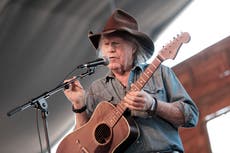Ray Clemence: Athletic goalkeeper and backbone of Liverpool’s Seventies success
The footballer’s stellar spell between the posts did much to help the club win five league titles

Ray Clemence first found fame as a member of the all-conquering Liverpool side of the 1970s and was one of the very few footballers to have played more than 1,000 games. Later spending seven seasons at Tottenham Hotspur, he also won 61 international caps, becoming the first English goalkeeper since Frank Swift in 1948 to captain his country.
Throughout his hugely successful 23-year playing career he remained a fabulously agile and athletic 6ft shot stopper, blessed with remarkably sharp reflexes and a shrewd positional sense. He proved no less adept with the ball in his hand, able to find playmakers and set up attacks with pinpoint accuracy.
Spending his formative years in Skegness where each summer he worked as a deckchair attendant, Raymond Neal Clemence was educated at Lumley Secondary Modern School. Excelling at mathematics, he had early aspirations to become an accountant.
As a footballer he began as a centre forward, moved to centre half before settling at left back. It was his school sports master who put him in goal. He was initially rejected by Notts County, but after starring for his youth club, Skegness Cosmos, in a junior cup final, he signed as a professional with Scunthorpe United, who played in the Third Division.
Beginning somewhat inauspiciously by letting in seven goals in only his fourth game against local rivals Grimsby Town, Clemence went on to make 48 appearances for Scunthorpe before legendary Liverpool manager Bill Shankly came calling in 1967. Despite watching Scunthorpe lose 3-0 to Doncaster Rovers, Shankly saw enough to pay £18,000 to bring Clemence to Anfield.
Initially forced to play second fiddle to veteran Tommy Lawrence, Clemence made his First Division debut for Liverpool against Nottingham Forest in 1970. However, following the club’s loss to lowly Watford in that year’s FA Cup quarter-finals, Shankly decided that the spine of the team needed surgery. Out went Lawrence, Ron Yeats and Ian St John and in came Clemence, Larry Lloyd and Doug Livermore.
Missing only six games throughout his 11 and a half years as the club’s first-choice keeper, Clemence made 665 appearances and kept a remarkable 323 clean sheets. During the 1970/71 season, he only conceded 22 goals in 41 First Division appearances, a record he surpassed eight years later. With Bob Paisley having replaced Bill Shankly, the club set a record of 68 points and Clemence, an ever-present, conceded only 16 goals. His stellar spell between the posts did much to help the club win five league titles, three European Cups, two Uefa Cups, as well as triumphing in both the League and FA cups.
What particularly endeared him to the Kop was his fearless athleticism as personified by his superb penalty save from Jupp Heynckes in the first leg of the 1973 Uefa Cup Final at Anfield. Liverpool won the first tie 3-0 but after 45 minutes of the return leg, they were 2-0 down and only just managed to hang on until the final whistle. No less impressive was his performance in the 1977 European Cup Final, when against Borussia Monchengladbach he changed the game by somehow keeping out a close-range effort from Uli Stielike just after the German side had equalised. Had Liverpool then gone 2-1 down, the final result could have been so very different. Earlier, in an epic quarter-final encounter at Anfield, his reflex save from St-Etienne’s Dominique Rocheteau saw his team home.
He won the first of his 61 England caps in a World Cup qualifier against Wales in November 1972. Sharing the goalkeeping berth with Peter Shilton, Clemence’s international career unfortunately ran parallel with the national team failing to qualify for both the 1974 and 1978 World Cup competitions. When the next competition came around, Shilton took the honours with Clemence being an unused substitute. His final England cap came in Luxembourg in 1983.
Following Liverpool’s European triumph against Real Madrid in Paris in 1981, possibly feeling that his days as first choice at Anfield were about to come to an end with the arrival of Bruce Grobbelaar, Clemence surprisingly sought a transfer. He went on to make more than 200 appearances for Tottenham Hotspur after moving to the club for a fee of £300,000. In his first season at White Hart Lane the side lost the League Cup Final to Liverpool but beat Queens Park Rangers to take the FA Cup. Suffering a rare shoulder injury in 1984, and though he recovered in time, he remained on the bench for the Uefa Cup Final. Three years later he became one of a select group of players to have appeared in five or more FA Cup finals, with Spurs eventually to Coventry City.
An Achilles tendon injury in 1987 finally brought the curtain down on his illustrious playing career. Staying on at White Hart Lane, Clemence joined the backroom staff, first as goalkeeping coach before combining that role with reserve team manager and later becoming a first-team coach. He was axed in 1993 as new manager Ossie Ardiles reshaped his backroom team. For two years Clemence managed Barnet before becoming England’s goalkeeping coach. He later worked as head of development at the Football Association, retiring in 2013 following nearly half a century in the game. He was awarded an MBE in 1987.
Clemence, who has died aged 72, married Veronica Gillespie in 1971 and the couple had three children: Sarah, Julie and Stephen.
Ray Clemence, footballer and coach, born 5 August 1948, died 15 November 2020
Join our commenting forum
Join thought-provoking conversations, follow other Independent readers and see their replies
Comments


Bookmark popover
Removed from bookmarks